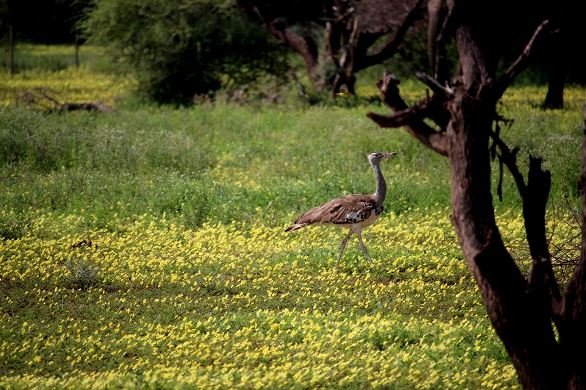Veldpou on devils thorn

Author: Ivan Lätti
Photographer: Eric Aspeling
Stanley’s bustard walks unscathed across a carpet of yellow-flowering Tribulus zeyheri plants on a sunny day. The devil’s thorns harass softer soles, clearly no problem for birds or for this bird.
The veldpou (veld peacock), scientifically Neotis denhami, occurs in much of South Africa, except the northwestern region; widespread in Sub-Sahara Africa. Widespread does not mean common, they are occasionally seen in highland grass, savanna, Karoo scrub and in some mountainous regions.
The male is taller than 1 m and weighs up to 10 kg, the female notably smaller. The bird is brown on the back, white below, the back of the neck is rufous, the front grey.
The veldpou diet includes seeds, grass, flowers, insects, millipedes, lizards and small rodents.
Stanley’s bustards move in groups of up to ten, splitting into pairs or solitary when breeding. One to two pale olive brown or greenish eggs with darker streaks are hatched by the female only (Maclean, 1993; Wikipedia).

